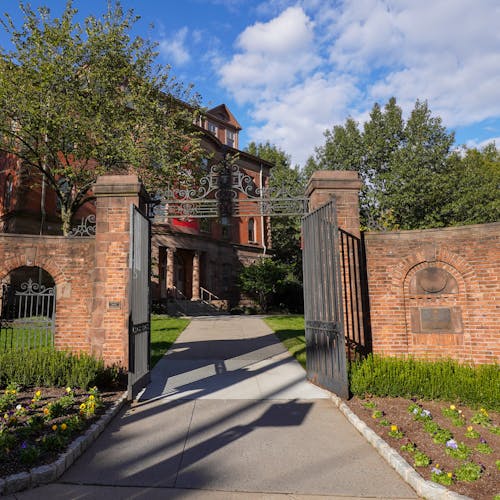HOLEY: Political correctness has pushed us too far

This past week, I was in class when my teacher asked us for our opinions and analyses of the story we were reading. We could say anything we wanted to, or so I thought. The story, in short, was about a group of kids picking on another group of special needs children. The teacher asked how having the group of special needs children changed the story. I said that having them be special needs elicited a strong sympathetic reaction, from the readers, to their circumstances within the story.
I then dared to say that people would have not tended to be so sympathetic toward a “normal” group of children in the story. She took issue with the word “normal” and so I replaced it with “average.” I was told not to say average either and was told to use the specific terminology of “not special needs” instead.
I have something called Obsessive Compulsive Disorder (OCD) and when I was a child, I used to have really bad tics whenever I was stressed. If someone had compared me, then, to “normal” or “average” children I would have taken no offense. Even today, I would still take no offense. Why? Because OCD is not normal, just like being special needs is not average. They are both special circumstances. When someone refers to a specific trait in an individual and then refers to the “normality” within others, they are addressing one specific aspect of the individual and not the entirety of the individual.
Additionally, part of what champions of political correctness fail to remember are the important matters of intent and context for when people speak. Was the wording someone used filled with malicious intent? Communication is a widely complex thing that cannot be broken down into absolute truths based on the words themselves alone.
Ironically enough, some girl in the class I was in ended up saying the N-word (by my observation, she was not Black) and the professor made no comment — presumably because it was quoting the story, meaning she said the word without any malicious intent. I personally would not have directly quoted the word, but I still did not judge the person for what they did. If anyone was offended by the word usage, they could have spoken up and I am certain that the person would have clarified that they meant no harm by it – the same as I would have done for what I said.
My theory is that people who advocate for radical political correctness take their own inner stigmas and force them on to the people around them. They, at one point, realized their own inner prejudice and so they immediately assume that everyone else has that same prejudice and that others just may have not realized it yet. They are wrong.
Not everyone goes around trying to bring down and degrade other people. Most people are just trying to get a point across in the way that they are used to. It is far more understandable if someone takes a word with a certain historical usage, like the N-word, and makes a case for people not using the word. But, I think banning words like “normal” is going a little too far.
I will give one final example of radical political correctness in order to show why such a mentality is so harmful. Months ago, I told someone “Merry Christmas,” despite not even being Christian myself. I was subsequently told not to say “Merry Christmas” because “they might not celebrate Christmas.” I was then told that I should have said, “Happy Holidays” instead.
There was no politeness in such a “correction” as they acted as if I had committed some grand offense by wishing someone good will and happiness – God forbid. Do you know what will happen the next time I am around those people during the holidays? I will not say a single thing to them. I will happily ignore them because when I tried being nice, their first instincts were to correct me according to their world view, as if I needed to be put in my place.
I take no offense to someone saying “Merry Christmas” or “Happy Hanukkah” to me because I understand that they are saying it to be positive and to make me happy. I respect another person’s intent to be joyful and celebratory.
I do not want to live my life discouraging people from talking to one another out of fear that I will lash out at them. Because, if we live in a society where we all constantly try correcting each other’s behavior in the rudest manner possible – even when it comes to basic things said without any ill intent – then no one will want to speak. People would rather just sit back and hold in their thoughts lest risk some self-righteous person attack them for their accidentally using “incorrect” wording.
Michael Holey is a School of Arts and Sciences junior interested in political science. His column, "The Breaking Point," runs on alternate Mondays.
*Columns, cartoons and letters do not necessarily reflect the views of the Targum Publishing Company or its staff.
YOUR VOICE | The Daily Targum welcomes submissions from all readers. Due to space limitations in our print newspaper, letters to the editor must not exceed 500 words. Guest columns and commentaries must be between 700 and 850 words. All authors must include their name, phone number, class year and college affiliation or department to be considered for publication. Please submit via email to [email protected] by 4 p.m. to be considered for the following day’s publication. Columns, cartoons and letters do not necessarily reflect the views of the Targum Publishing Company or its staff.



